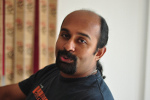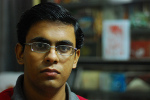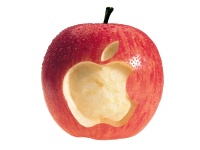A Conversation with Planet FLOSS India’s co-founders Sankarshan Mukhopadhyay and Sayamindu Dasgupta.

Planet FLOSS India
India’s free and open source software community is known for its vibrant diversity. It is diverse geographically, technologically and ideologically and has voices that range from the inspired to the obsessed. Planet FLOSS India is a successful online platform representing India’s many FOSS voices. I’ve known the planet’s co-founders, Sankarshan and Sayamindu for many years now and recently talked to them about the planet’s origins, success and future. Here is what they had to say.
1. India’s FOSS community is large yet mostly unknown. Planet FLOSS India is helping make the community’s voices more widely known. Tell me about how this Planet came about and who came up with the idea.
Sankarshan: http://web.archive.org/web/*/http://planet-india.randomink.org shows that May 20, 2004 was when Planet FLOSS India first appeared on the World Wide Web. The idea for this planet was floating around in our heads for at least 3 months before that. As far as I recall, one evening, at Sayamindu’s place, we realized that the two of us read other planets all the time. We ended up wondering what it would take to build one for India.

Sankarshan

Sayamindu
It took ten minutes to register the domain and a day or so to obtain the hosting space. Sayamindu helped out a lot by doing some research and selecting Dreamhost. Between the two of us, we did not actually know many folks; so we decided to get some word of mouth going (including instances where we had folks telling us “you have a piddly 12 folks blogging and getting syndicated on the planet and you call it Planet FLOSS India ?”) That was then. We’ve come a long way since then I’d say.
Sayamindu: We could do more stuff really ![]() I guess we are limited by our own interest in getting things through.
I guess we are limited by our own interest in getting things through.
2. Planets are excellent tools for community building. What has helped you in building and managing this community and maintaining its quality.
Sankarshan: Personally, one of the satisfying results of helping host this planet (I pay for the hosting while Sayamindu does other larger bits) has been seeing the breadth and quality of people we have come across. Most of the time the conversation has been long-lasting and interesting. There is a tremendous amount of work in the FLOSS space that happens in India, and what we syndicate now represents the subset of just those who write. Having a pan-India planet is also interesting as it allows us to see the regional or task specific ones (planets) like Planet Durgapur LUG and so forth.
Sayamindu: I’d also like to believe that it has allowed an online space for conversation. We have had bloggers send us notes of appreciation when someone stumbled on to their work because they were syndicated and, thereon collaboration flourished. This makes us happy.
3. Have you ever had a problem where you had to drop a blogger off.
Sankarshan: We don’t actually have a policy on the content. The planet began with an aim to allow both of us to get to know folks and, we do tend to believe that it is always better to let every facet of personality shine through. Having said all of that, there have been times when we have had to comment out the feed URL in the configuration file thus taking the blogger off the planet.
Sayamindu: As a best practice, we try and reach out asking for a specific feed and so forth. It has not been a problem but yes, like other planets we have had to exercise some editorial control on the content.
4. What are your plans about growing Planet FLOSS India?
Sankarshan: The planet’s growth has been more of an evolution.
One aspect we’d like to think about is how to get folks to have the discipline to write about what they are up to. The more they think about it in terms of collaboration (and less in terms of PR for their projects), we should see a good amount of writing coming up. We also try to convince folks to write in their local languages. Local language content would make a good amount of material fly past our readers, but it would be good to see content and blogs getting syndicated in Indian languages.
We haven’t run too much analysis on the content that goes on the planet. Nonetheless we tried to test the grade at which it was written (turns out that it is mostly easy to read) but I’d say that in our evil plans ![]() there is this idea of expanding the ‘S’ in FLOSS beyond Software per se and make it easier for anyone to feel that they could be syndicated.
there is this idea of expanding the ‘S’ in FLOSS beyond Software per se and make it easier for anyone to feel that they could be syndicated.
Sayamindu: There are some technical parts to the infrastructure that we have to look at in the near future – these include the ability to self-add oneself to the planet. For example, The Fedora Project Planet does this nicely. We also need someone to do up a newer theme and CSS for the planet now that I don’t have the time at all. ** The current theme was cooked in one night and uses quite a few hacks which fall apart in some corner-cases. It would be nice to have someone preserve the look and feel, but rewrite the entire HTML/CSS part in a cleaner fashion. **
5. How do you support the infrastructure for the Planet. Do you take donations, gifts and hardware? What about ads? How many hits do you have to handle?
Sayamindu: Hosting and domain charges are paid entirely by Sankarshan personally. We have around a 1000 unique visitors to the site per month (its not very high, but most of them access the site daily). Moreover, people also access the site via RSS feedreaders. There’s also a Google SMS channel which sends out a mobile text message when a new post shows up on the Planet. Most of the visitors are from India, and some are from North America and Europe.
6. What’s next for Planet FLOSS India. What’s in store in the future?
Sayamindu: A major priority is cleaning up of the design (visual as well as from the point of view of HTML/CSS). I also have some ideas like having a Google custom search so that people can search the posts made by the people on the Planet, letting people share and designate favorite posts directly from the planet interface, making the Planet self service (for example, people can add themselves, change their hackergotchi/rss feel url) etc.
And of course, we are always looking for people who would like to get syndicated on the planet. Please email us if you are interested in getting syndicated or volunteering to help with planet maintenance.
Thanks Sankarshan and Sayamindu for discussing Planet FLOSS India. I wish you great success in growing Planet FLOSS India!


